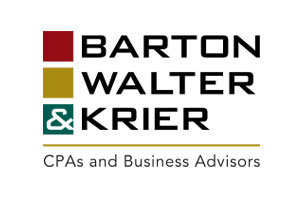5 Investment Strategies for Small Business Owners
December 19, 2023 | adminAs a small business owner, it can be easy to get caught up in your day-to-day affairs without giving a second thought to your long-term goals. After all, each day brings enough work for itself. But taking time right now to invest in your company’s future will pay dividends down the road. In this blog, we’ll share five investment strategies that small business owners can use to grow their company and prepare for the future.
Before we begin, there are a few things to keep in mind. First, know your goals. What do you want to accomplish with your company and your finances, and what do you need in order to get there? Do you have a targeted yearly revenue? Is your goal to follow your personal interests and passion? Maybe you want to retire by a certain age. Whatever your goals are, they should inform your investing strategies.
The second thing to be aware of is your personal risk tolerance. Investing in assets such as stocks carries a certain level of risk as the market fluctuates. You should therefore decide from the beginning what your comfort level is and how much money you’re willing to invest.
Finally, remember to diversify your portfolio. Consider investing in multiple equities across industries and in other assets such as real estate. You don’t want to put all your eggs in one basket.
5 Investment Options to Grow Your Small Business
1. Stocks
Purchasing stocks, also known as equity investments, is the first thing many people think of when they hear the word “investing,” and for good reason. The stock market is one of the most common ways to grow your income outside of your company revenue. If you’re new to equities, you could use a robo-advisor or buy an ETF in a reliable index such as the S&P 500 or Dow Jones Industrial Average.
2. Bonds
Bonds are issued by companies or governments to raise funds for projects. If you buy a bond, the issuer promises to pay it back with interest over time after the project is complete. Buying bonds is considered less risky than trading stocks and is an easy way to diversify your portfolio.
3. Real Estate
Another investing option is to buy properties to rent out. While expensive in the short term, it provides a steady stream of income. You can also purchase real estate investment trusts (REITs) without actually owning the property. And if your company is currently paying rent for its own space, you should consider buying your own property to operate your business out of. You won’t have to pay rent, and you can lease extra space to other companies.
4. Invest in Your Employees
Your people are your greatest asset, and investing in them can have the highest returns. This can mean providing training and educational resources to help your employees’ personal and professional development, purchasing equipment that allows them to work more efficiently, or providing a greater compensation and benefits package.
5. Hire an Accountant
Tracking and managing your company’s finances becomes more complex as your business grows. Ensure that the numbers are working in your favor by collaborating with a professional accounting firm. At Barton, Walter & Krier, we are a full-service CPA firm providing premier accounting, tax, and consulting services to a wide variety of middle market and small business clients. We’ll help you track your earnings and assets, prepare your taxes, and keep your company on the path to meeting your goals. Investing may seem overwhelming if you’re new to the process, but remember these five strategies, and you’ll be well on your way to growing your business. Contact us today to invest in a better future for your company.

